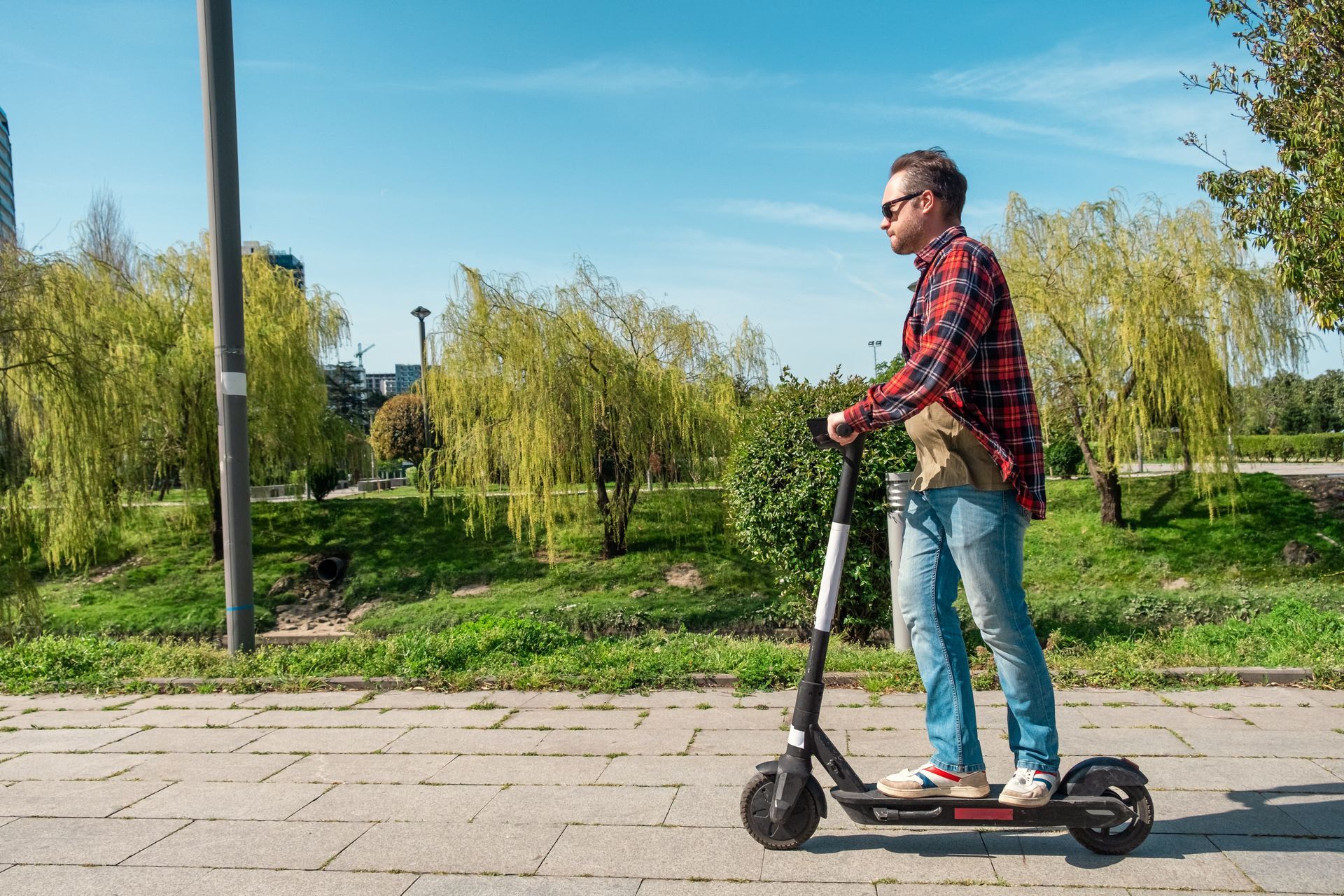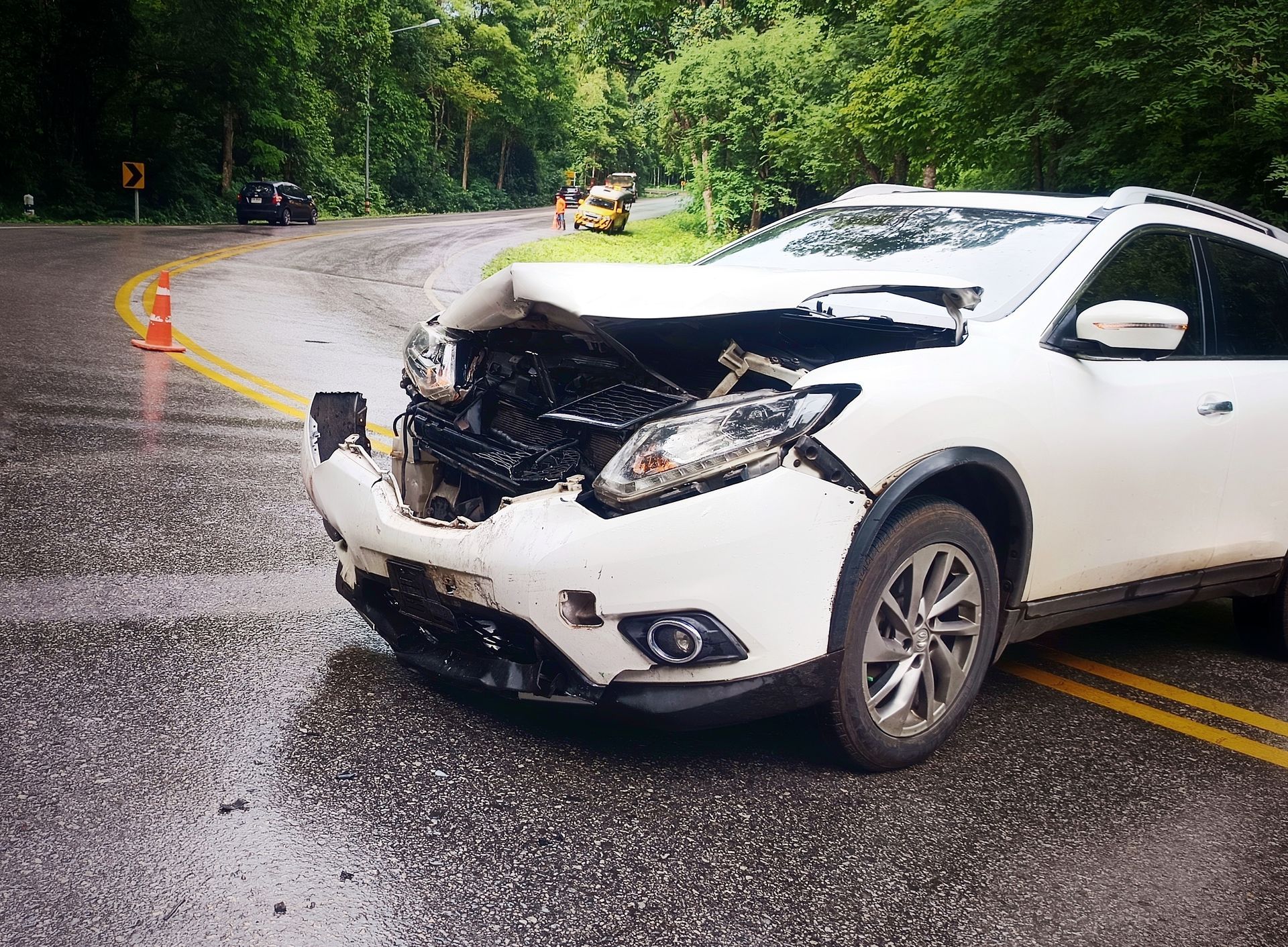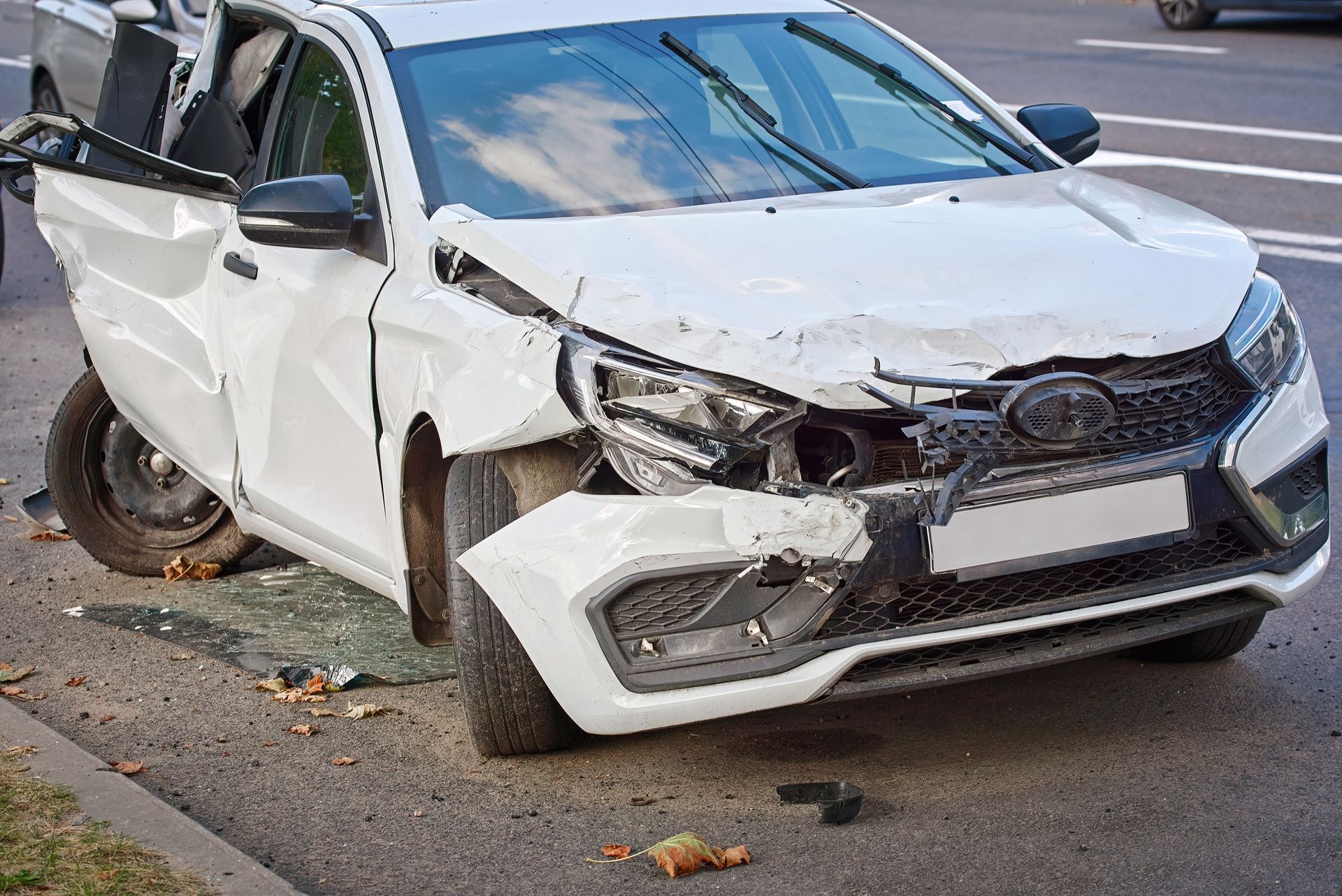Sargon Law Blog
Recent Blog Posts
Everything To Know About Motorcycle Helmet Laws in Arizona
The weather in Arizona makes motorcycle riding possible year-round. Unfortunately, there are over 2,300 motorcycle crashes yearly, with an average of 160 fatalities and 1,921 injuries. Riders typically wear helmets to prevent injuries and preserve life during an accident. However, Arizona motorcycle helmet laws don't mandate this practice for all riders.
The Origin of Motorcycle Helmet Laws
Before 1965, no U.S. states had a helmet law for motorcycle riders. In 1966, the Highway Safety Act gave eligibility to federal transportation funds to states that put universal motorcycle helmet mandates in place. By 1975, the District of Columbia and 47 states had the required laws.
In 1975, the federal government eliminated the federal penalties handed down to states that didn't put helmet laws on their legislative books. This change led half of the states to weaken the laws' impact to where they only impacted young riders or eliminated the regulations.
What States Is It Legal To Not Wear a Motorcycle Helmet?
Over the years, several states changed their motorcycle helmet state laws to reinstate mandated use, while others continued to soften them. There are 29 states with laws requiring helmets for riders of certain ages, and three states have no laws on motorcycle helmet use. These are:
- Illinois
- Iowa
- New Hampshire
As of 2021, only 18 states joined the District of Columbia with universal helmet laws for motorcyclists. Despite the option to go without a helmet, statistics show that nearly 65% of riders nationwide still wear a DOT-certified helmet.
Does Arizona Have a Motorcycle Helmet Law?
Arizona has motorcycle helmet laws in place, but they are less stringent than many of the states in the nation. The laws deal with the age of rides, the type of helmet required and the consequences for not complying with the law.
Is It Legal To Ride a Motorcycle in Arizona Without a Helmet?
Since the Arizona motorcycle helmet law only requires a certain age to wear a motorcycle helmet, you may find it legal to ride in the state without a helmet. However, laws can change, making knowing the requirements before you go for a ride essential. Additionally, whether it's legal or not, wearing a helmet increases your safety and protection.
The Details of Arizona's Motorcycle Helmet Laws
The current helmet law in Arizona deals with the rider's age and the position on the bike. The requirements are part of a bigger piece of legislation known as Title 28 dealing with transportation issues. Article 16 in ARS 28-964 lists the specifics of motorcycle helmets. The law states that either the passenger or an operator of a motorcycle under 18 must always wear a protective helmet. The law states operators or passengers must appropriately wear that headwear.
The instructions go further and include a mandate for protective eyewear. The options for eye protection include:
- Goggles
- Protective glasses
- Transparent face shield
If the motorcycle has a protective windshield, it can satisfy the eyewear protection requirements.
The law also addresses the equipment required for a motorcycle to improve rider safety. It stipulates that both the driver and passenger have footrests, while the bike itself must have a rear-view mirror and secure seats for the driver and passenger. The law also expands the requirements to include riders of a motor-driven cycle or all-terrain vehicle.
For anyone older than 18, there is no helmet mandate, regardless of the rider's experience level. Unfortunately, experienced Phoenix motorcycle accident attorneys have seen victims taking advantage of this freedom leading to serious injury when involved in an accident.
The Injury Protection From Motorcycle Helmet Laws
Laws requiring motorcycle riders to wear helmets are for the protection of those who drive and ride the bikes, as well as other motorists on the road. The potential for injuries or death from an accident or collision is high. Nearly half of the accidents involving a motorcyclist who didn't wear a helmet result in a fatality. While crashes involving motorcycles are on a decline, fatalities remain steady.
Although riding a motorcycle leaves the entire body exposed and susceptible to injuries, severe trauma to the head and neck regions is likely during an accident. Wearing a helmet can't completely prevent injury, but it increases survival and serious injury rates. The National Highway Traffic Safety Administration estimates that wearing a motorcycle helmet saves nearly 2,000 lives a year when factoring in the data from across the country. For riders in Arizona, a properly fitting and DOT-certified helmet can reduce the risk of death by 37% and the risk of a head injury by 69%. Helmets improve rider safety.
Head Injuries
Head injuries are some of the most serious concerns for motorcyclists. These can range from mild to severe, potentially causing permanent emotional, mental or physical disabilities. In severe accidents, the injury could lead to death.
When a motorcycle rider gets thrown from their bike or slams into another car during a crash, there is a risk of head trauma like brain swelling, skull fractures and concussions. Injury risks include:
- Traumatic brain injury
- Seizures
- Coma
- Paralysis
- Hemorrhaging
After the accident, an individual can still experience discomfort or life-long disabilities. Those injured could experience anxiety, depression, memory loss, disorientation, loss of motor skills or coordination. Permanent impairment is a significant concern for those injured in a motorcycle accident, as it can impact your ability to work, have a social life, raise a family or pursue your dreams.
Face or Neck Injuries
Motorcycle helmet laws also help prevent face and neck injuries in a motorcycle accident. Though goggles or protective eyewear can prevent windburn, eye strain, moisture or debris from getting into the eyes, a face shield can help prevent broken jawbones, broken noses or teeth loss. With the types of injuries possible to the face, riders could experience permanent disfigurement and scarring.
Neck injuries from a motorcycle accident include whiplash. This happens when the impact causes the driver's neck to suddenly whip in a back-and-forth motion. Though damage can occur to the bones, tendons, nerves, ligaments and muscles of the neck, wearing a helmet can help reduce the amount of compression within the neck on impact. A serious neck injury can damage the spinal cord and cause paralysis.
Mental Health Injuries
Anyone who gets into a motorcycle crash may struggle with long-term effects on their mental health. Regardless of the severity of the accident and physical injuries, the mental trauma and shock from the event have the potential to trigger a wide range of emotional reactions. These emotions are a natural body response but can negatively impact mental health.
Motorcycle helmet laws directly impact the physical injuries of an accident, but the protection a helmet offers can also help provide peace of mind for drivers. However, you may still experience some of the mental health concerns after getting into an accident.
Post-Traumatic Stress Disorder
PTSD is a mental health condition that could develop after being in a motorcycle accident. This serious mental health concern can impact your quality of life. Symptoms of this disorder include:
- Nightmares
- Flashbacks
- Intrusive thoughts about the traumatic event
- Feelings of detachment or numbness
- Avoidance behaviors
People with PTSD often experience hypervigilance or heightened anxiety, potentially leading them to avoid motorcycle riding. Others may struggle with irritability, mood swings and insomnia. Not everyone who experiences a motorcycle crash will develop this condition, but for those who do, medications, therapy and other treatments are necessary to manage the condition.
Anxiety and Depression
The peace of mind that comes from motorcycle helmet laws can impact the severity of the trauma an individual experiences from an accident. Anxiety and depression often accompany physical pain and injuries as individuals try to cope with the loss of mobility, disabilities, property damage, haunting memories, lost income and other situations.
Feelings of anxiety, hopelessness and sadness can cause individuals to lose interest in their hobbies or social life, but these can also interrupt sleep or appetite patterns or the ability to concentrate. Excessive worrying, sweating, unrealistic fears and restlessness may accompany thoughts of the accident or getting on a motorcycle again.
Depression accompanies anxiety when an individual succumbs to these feelings of hopelessness, potentially leading to apathetic or disengaged behaviors. Therapies like stress management, relaxation techniques, self-care and medication can help individuals address their challenges with depression or anxiety.
The Helmets Recommended by Motorcycle Helmet Laws
In addition to motorcycle helmet state laws setting the requirements for who must wear a helmet, many states set specific instructions for the type of helmet a rider must wear. Although the Arizona law doesn't specify that riders wear a DOT-certified motorcycle helmet, a DOT certification is the recommendation of the National Highway Traffic Safety Administration.
A DOT-certified helmet contains a marking on the back of the headpiece. It bears the stamp of the United States Department of Transportation and indicates the manufacturer produced the helmet with the highest safety standards. The Federal Motor Vehicle Safety Standard (FMVSS) No. 218 includes these safety standards. Although the NHTSA doesn't approve helmets, it does conduct random tests on products to evaluate compliance with safety standards.
There are several states where motorcycle helmet laws require a DOT helmet. Every motorcycle helmet sold in the United States must meet federal standards and contain the certification label. An official DOT label includes the following information and wording:
- Manufacturer
- Brand
- Model designation
- DOT/FMVSS No. 218 certified
Helmets sold before May 13, 2013, have a certification label that only reads DOT. Unfortunately, you may encounter retailers selling novelty helmets that don't meet DOT safety standards or helmets with a fake DOT label. These will not provide adequate protection if you were to get into a crash.
You should also know that helmets can have an expiration date. Helmets loose 2% efficiency every year due to natural material deterioration. Helmets worn during a crash or that were repeatedly dropped on the ground could also experience a loss in protective value.
The Appropriate Manner Component of Arizona's Motorcycle Helmet Law
For those required to wear a motorcycle helmet in Arizona, there is a phrase in ARS 28-964 requiring the individual to wear the helmet appropriately. Wearing a helmet correctly enforces the safety protections the helmet should provide, so wearing a helmet backward or with the face shield or visor up reduces the rider's protection.
Remember that the wording of ARS 28-964 also contains instructions on eye protection. It states that riders under 18 must also wear protective goggles, glasses or a transparent face shield. If the style of the helmet has a clear visor that covers the face, this satisfies the law's requirements and demonstrates appropriate use.
While it is up to the discretion of law enforcement to determine if an individual is wearing the helmet appropriately, remember that Arizona law only requires those younger than 18 to wear a helmet. Those beyond the age limit can wear their helmet as they please without fear of legal consequences, though it does jeopardize your safety.
The Consequences of Ignoring Motorcycle Helmet State Laws
Law enforcement can issue a citation for non-compliance for those under 18 who fail to wear a helmet. First-time offenses for riders could result in a fine between $25 to $75. Repeated violations will increase the penalty to $75 or higher. For repeat offenders, the court may require the completion of a driver's education class in addition to the fines.
A certain number of citations associated with your driving record could also affect your auto insurance rates or ability to work as a driver for a company. Insurance rates tend to increase when a motor vehicle check indicates a higher level of risk with a driver. While you may not need to wear a helmet, your child's failure to do so impacts you.
Staying Aware of Motorcycle Helmet Laws
If you choose to ride your motorcycle in Arizona's neighboring states of New Mexico, Utah, Nevada or California, brush up on their motorcycle helmet laws. You don't want to get caught without a helmet when wearing one is the law. Our skilled Phoenix personal injury attorneys suggest wearing a helmet improves your safety as a driver or rider and could save your life. If you do get into a motorcycle accident, Sargon Law Group can help you get the compensation your injuries deserve. Contact us today.





